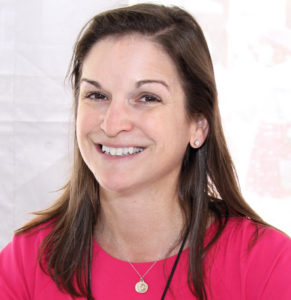
(Larry D. Moore, CC-BY-SA 4.0)
Last week a dust-up on Twitter grew into a Category 5 hurricane. Young Adult author Sarah Dessen learned her name was mentioned in a small-town university newspaper. The article was a feature piece on the university’s successful campus-wide reading program. One of the program’s student committee members—a junior at the time—told the newspaper
“She’s fine for teen girls,” the 2017 Northern graduate said. “But definitely not up to the level of Common Read. So I became involved simply so I could stop them from ever choosing Sarah Dessen.”
(Although I share the student’s last name and my father hails from the same state as the university, I’m not related to the student. Trust me: There are a lot of Nelsons in South Dakota.)
Miffed, Sarah Dessen took her disgruntlement to her Twitter account, where she shared with over 268,000 followers:
Authors are real people. We put our heart and soul into the stories we write often because it is literally how we survive in this world. I’m having a really hard time right now and this is just mean and cruel. I hope it made you feel good.
What ensued is a now-familiar pattern on the Internet: mob outrage followed by mob backlash followed by apologies followed by meta-analysis of what transpired (which includes this post, I suppose).
In the initial burst of Twitter outrage, the student’s remarks were construed as demeaning YA fiction, demeaning teenage girls, internalized misogyny, promoting abuse toward women, and worse. Her social media accounts were tracked down and she was hounded offline. She was even snubbed by other big-name authors she may have read and possibly admired. One of them attacked her by name in the newspaper’s comment section.
The authors’ attacks were amplified a thousand-fold by their supportive followers on Twitter, which only served to energize the authors’ continued denunciations and self-righteousness. Remember, most of the authors involved write YA, a genre whose subject matter centers around solitary young people being kicked around by those in power.
The backlash probably started on Twitter, but picked up strength when online commentary outlets voiced their incredulous disbelief at the mob mentality. The backdraft circled onto Dessen and her prominent supporters, leading them to delete their old tweets and issue apologies.
(This narrative is better covered by places like Vulture and Slate. For the gory blow-by-blow details, I suggest starting there.)
The story has more or less died down now. The media outlets have updated their reports to include these apologies. The door is closing on the story. Time to move on.
The transitive logic underpinning the entire affair is remarkable. A single college student opined that books by a certain author are not suitable for a college-level reading program. From a single paragraph in a tiny university’s newspaper (current enrollment: 3,622) sprang a hornet’s nest of vicious conclusions. The logic magnified an innocuous criticism of a single YA author to an attack on all YA fiction and its readers. Thus, the logic went, if you’re a reader of YA fiction, it’s a personal attack on you. From there the maelstrom spiraled off into more sinister territory.
It’s confirmed: One’s tastes and reading habits may now interpreted as a systematic attack on the underprivileged and powerless. Before the incident faded off, there were tweets (now deleted) declaring the college student wielded more power than Dessen—after all, the student was on a committee at a tiny Midwestern school. Imagine if she had dared to write a negative Amazon review.
The muted blandness of the authors’ apologies are no match to the heights of the original vitriol or the depths of the condescension. Some of the apologies read like the calculated boilerplate of a publicist or press agent. Some of the apologies suggest the problem is not with the authors’ own attitudes or sensitivities, but that the college student wasn’t more powerful and thereby deserving of attack. I could spend another thousand words attempting to reconstruct how the hell our culture reached this point. And yet, here we are.
Would these authors have trained the same level of indignation on a professional critic with, say, the New York Times or USA Today? I doubt it. There’s a lot at stake there. A lone reader in a flyover state? Different story. (As Roxane Gay declared, “People have strange and inflated ideas about their taste level.”)
“For the man led a mob”
What’s at play here is the rise of the superauthor: Bestselling novelists who also maintain major media platforms—interactive web sites, message boards, podcasts, and social media feeds with hundreds of thousands of followers. They’re not merely authors, they’re brands. Many of these YA authors have crafted an online persona of a confidant and sympathizing mentor. You don’t merely read their books, you hear from them everyday. You see their vacation photos and learn about their pets. You share their ups and downs in the real world.
Utilizing the tidal hydropower of a platform to take down amateur critics is a new twist. G. K. Chesterton noted Dickens could not be ignored or dismissed “for the man led a mob.” Imagine if Dickens had Twitter.
Literary feuds are the stuff of legend, but they almost always involve authors, editors, and/or professional critics. We’re now seeing a new-style of literary feud in the Internet Age: The author versus a reader. This won’t be the last time writers hit back at reader criticism with the support of the multitudes behind them.
(This is not so far-fetched. In private channels, I’ve witnessed writers outraged over a negative Amazon review asking other writers what they know about the reader. I’ve never seen the anger escape those private channels, though.)
Successful YA writers are often adored by their fans for bringing magic and solace to a gray, heartless world. Classic YA writers like Judy Blume have shined a much-needed beacon for generations of struggling and desperate young people. Of course she’s adored. (I read Judy Blume when I was young. I thought she was wonderful too.)
But I simply cannot imagine Judy Blume engaging with the behavior on display last week. She’s a human being, a real person with quirks and faults, but she puts readers first—not only her readers, but readers of all stripes. Would Judy Blume have responded “I love you” to someone who posted worldwide “Fuck that fucking bitch” about a college-aged reader? I don’t see it.
Readers of any taste are comrades-in-arms with authors. This is doubly true in an age of Netflix, video games, and big-budget film. Fiction is increasingly perceived as losing relevance, if not irrelevant entirely. Of course negative reviews sting (I’ve suffered them too) but I hope I’ll never take for granted the grace of a reader devoting their time and energy to read my work. The college student’s remarks demonstrate she’s a passionate reader. It’s too bad none of the authors involved noticed that before launching their crusade.
That’s why I can’t let go of this line from Dessen’s original message:
Authors are real people.
As are readers.
